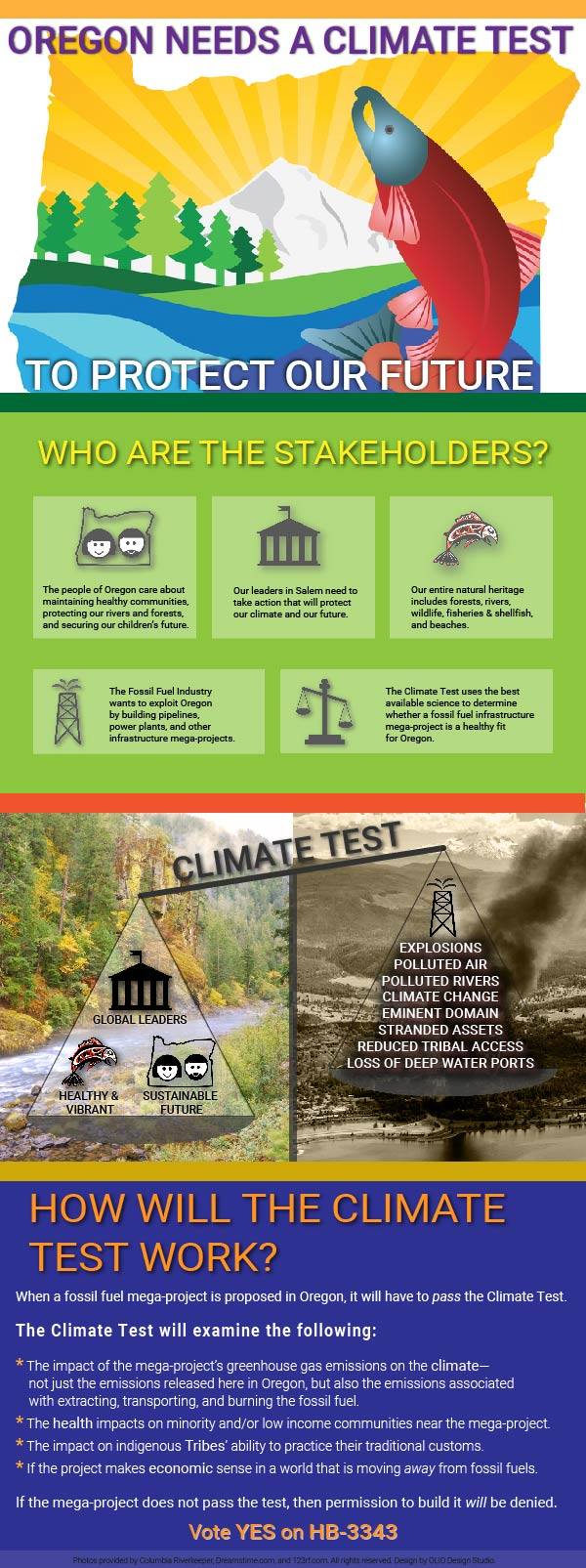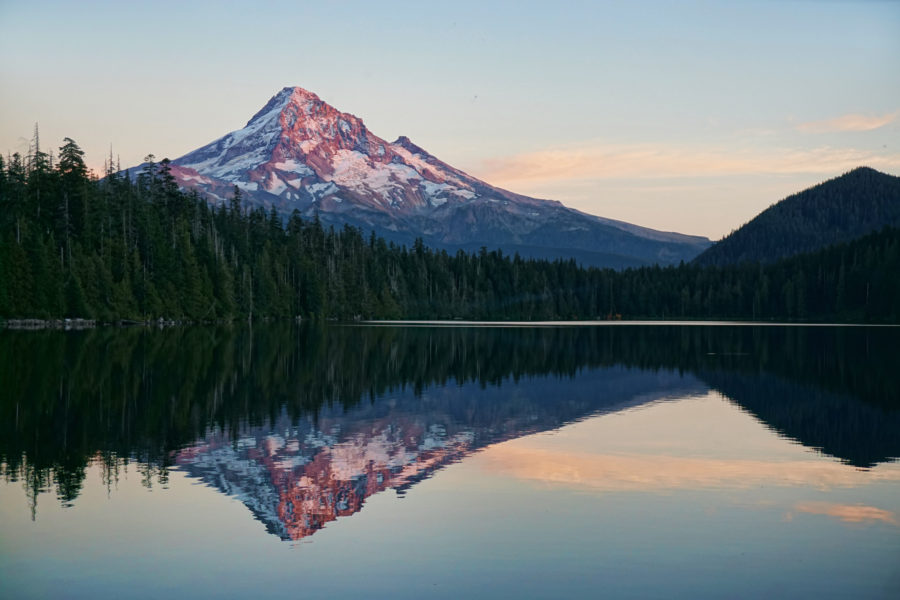After a string of successes defending the Northwest from ill-conceived dirty energy projects, the thin green line—the Northwest’s opposition movement to coal, oil, and gas exports—is starting to play offense. Local governments around the region are already updating land use laws to protect their communities from the depredations of fossil fuel infrastructure schemes. Now, a new bill in the Oregon legislature aims to raise the bar for the corporations proposing these developments—like would-be coal shipper Kinder Morgan or propane exporter Pembina Pipeline—by holding them accountable for their impact on the global climate.
Unlike in Washington, where large-scale projects must undergo a rigorous environmental impact analysis, including examining their potential for greenhouse gas pollution, Oregon currently has no formal way to evaluate the climate implications of proposed energy developments. That would change under House Bill 3343, the legislation sponsored by Representative Ken Helm (House District 34), and its companion, Senate Bill 1007, sponsored by Michael Dembrow (Senate District 23). (Note also an amendment to the bill.)
Dubbed the “Oregon Climate Test,” the legislation would subject new fossil fuel infrastructure projects to a review that would calculate their full emissions profile and their impact on the global climate. Crucially, the bill would also require proposed projects to pass an economic viability test. This analysis would determine a) whether the projects would be viable in a post-Paris Accord world, where the United States is committed to reducing its greenhouse gas emissions, and b) whether project backers were peddling a promise of jobs unlikely to materialize. Projects that fail to demonstrate their likely viability in a carbon-constrained future would be denied permits.
The principle of a climate test is not unprecedented. As Peter Ericksen of Stockholm Environment Institute pointed out in a December 2016 Seattle Times op-ed, President Obama advanced the idea in his rejection of the Keystone XL Pipeline proposal, and he deployed similar reasoning when he declared the Arctic off-limits to oil and gas drilling.
The thinking can fairly be applied to the Northwest as well. The region has recently found itself in the crosshairs of so many dirty energy proposals—coal export terminals, oil-by-rail facilities, and various fracked gas schemes—that, combined, would have the carbon footprint equivalent of more than five Keystone XLs. Given that reality, there’s a strong argument that Oregon decision-makers should have a much more complete view of the climate consequences of the projects they are weighing.
A hearing on the House bill is expected for Monday, April 10, at 3:00 PM, in Hearing Room D. In the meantime, you can read up on the backers’ case for an Oregon climate test and check out their Facebook page, too.



Comments are closed.